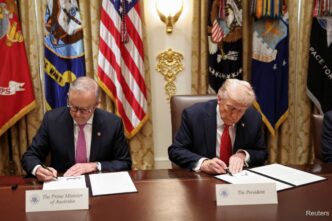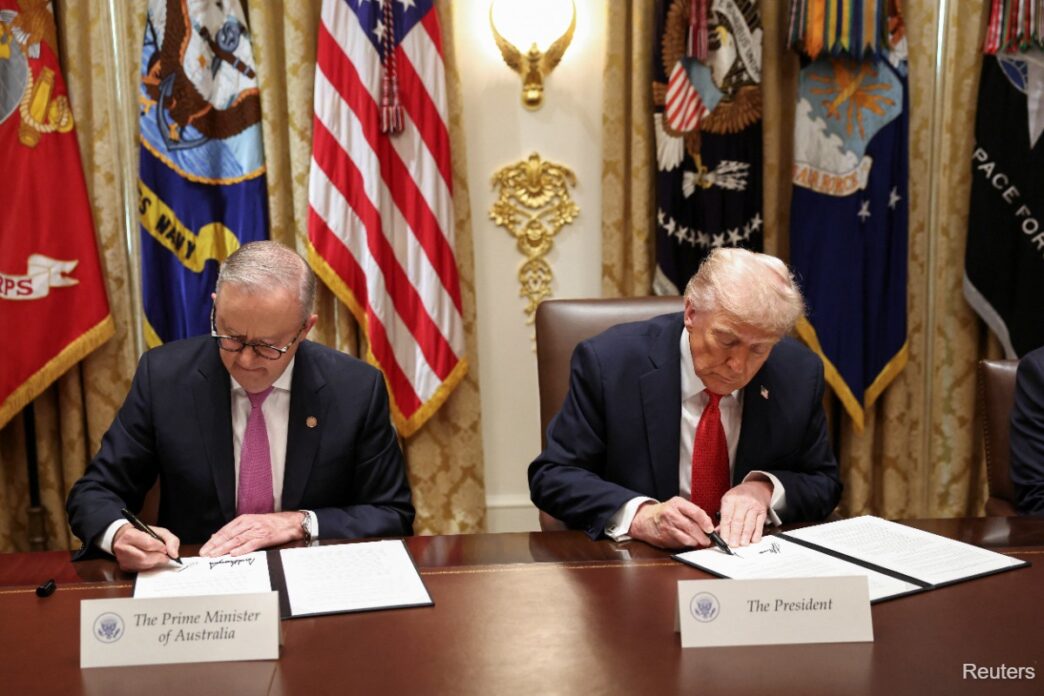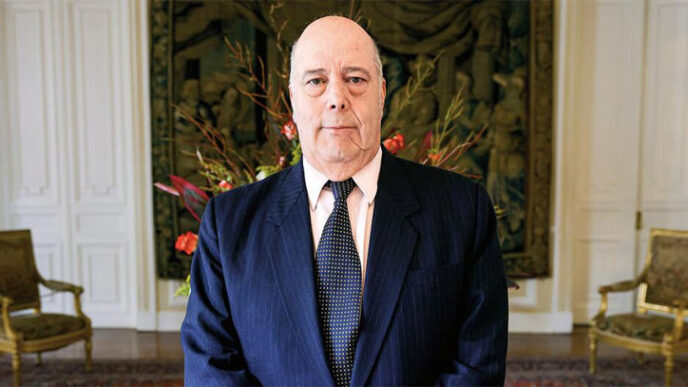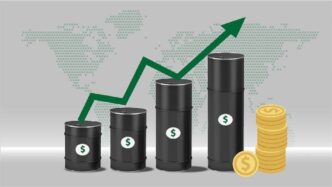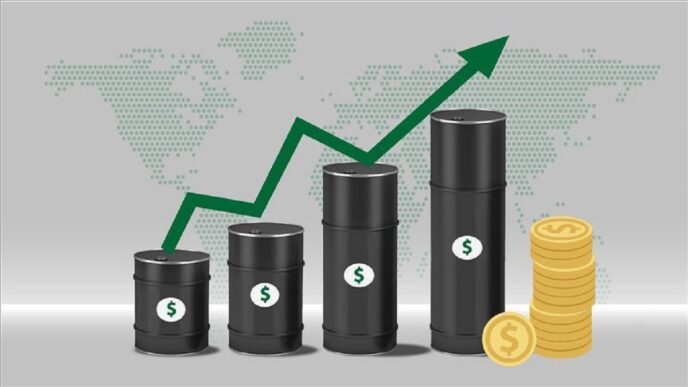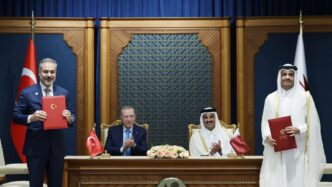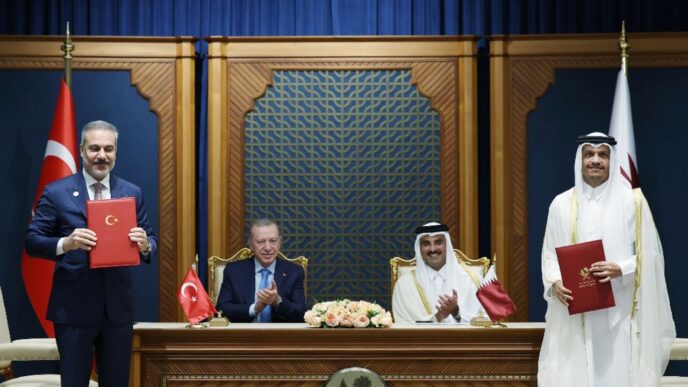U.S. President Donald Trump and Australian Prime Minister Anthony Albanese signed a landmark critical minerals agreement on Monday, signalling a united front to reduce dependence on China and strengthen supply-chain security across the Indo-Pacific. The deal was finalised during their first White House summit, a meeting that also highlighted Trump’s support for the AUKUS submarine partnership and an unexpected public exchange with Australia’s envoy to Washington.
The summit underscored a growing strategic alignment between the two allies as they confront shared challenges from Beijing’s dominance in the global minerals market. Trump and Albanese hailed the new $8.5 billion initiative as a major step towards reshaping the global minerals supply network. Under the agreement, both countries will each invest $1 billion over the next six months in mining and processing projects, setting a price floor for critical minerals to help stabilise markets.
A joint statement said the investments would target mineral deposits valued at around $53 billion, though specific materials and locations were not disclosed. “In about a year from now, we’ll have so much critical mineral and rare earths that you won’t know what to do with them,” Trump told reporters.
The U.S. Export-Import Bank later announced seven letters of interest worth over $2.2 billion to fund Australian mineral ventures, including Arafura Rare Earths, Northern Minerals, Graphinex, Latrobe Magnesium, VHM, RZ Resources, and Sunrise Energy Metals. The bank said the projects would bolster industries essential to defence, aerospace, communications, and next-generation technology, helping to “counter China’s export dominance and ensure Western supply-chain resilience.”
The Pentagon also revealed plans to build a gallium refinery in Western Australia, following China’s export ban on the element last year. Washington has been intensifying efforts to diversify access to critical minerals such as lithium, nickel, and rare earths — materials vital to electric vehicles, aircraft engines, and military radar systems.
During the meeting, Trump reiterated his support for the A$368 billion ($239.46 billion) AUKUS submarine deal first reached in 2023 under then-President Joe Biden. The agreement commits Australia to purchasing U.S. nuclear-powered submarines by 2032 before co-developing a new submarine class with Britain. Trump, who has rolled back several Biden-era policies, said he intended to move “full steam ahead” with the project.
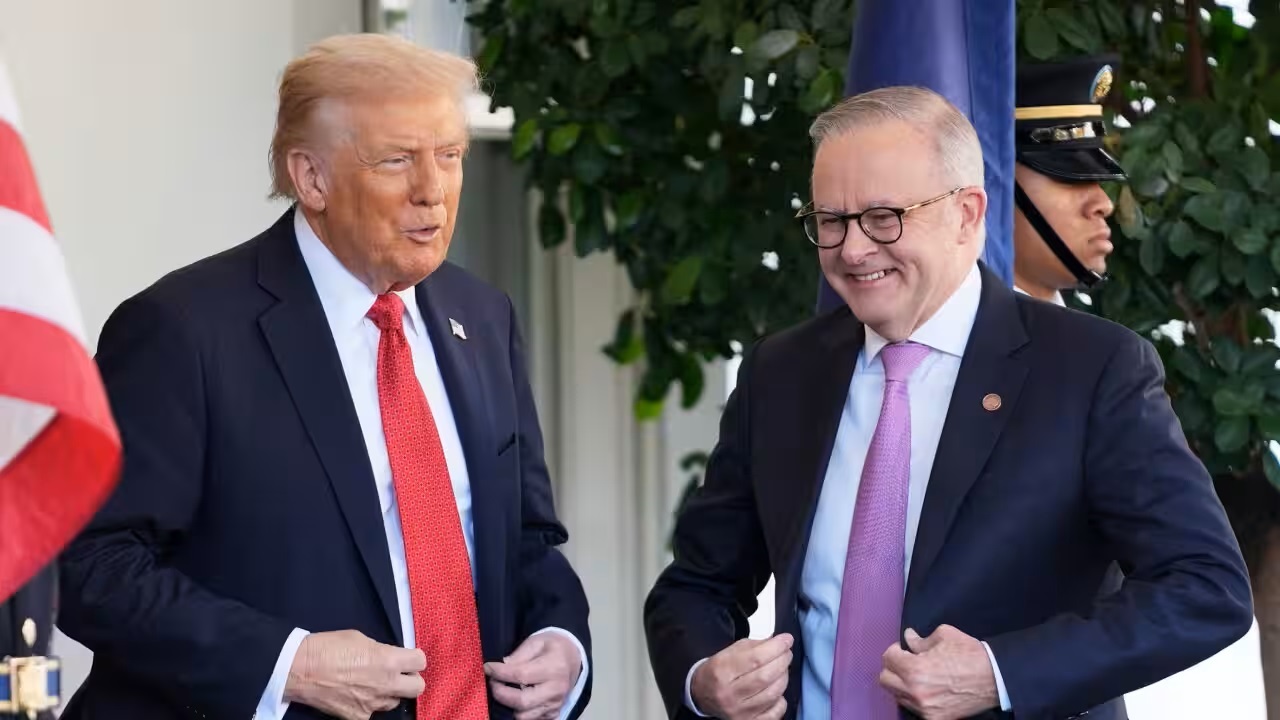
Australian officials, eager to emphasise their contribution, noted that Canberra is investing $2 billion this year to boost submarine production in U.S. shipyards and prepare for the maintenance of Virginia-class submarines at its naval base on the Indian Ocean from 2027.
Despite the cordial tone, the meeting began with an awkward moment when Trump confronted Australia’s U.S. ambassador, Kevin Rudd, over his past criticisms. In 2020, Rudd called Trump “the most destructive president in history,” a remark later deleted from social media. “I don’t like you either, and I probably never will,” Trump said upon spotting him across the table.
The minerals agreement follows recent U.S. criticism of China’s new export restrictions on rare earths, viewed as a threat to global supply stability. Both leaders agreed to accelerate permitting for new mines and processing plants, enhance geological mapping, and tighten rules preventing the sale of critical mineral assets on national security grounds — a veiled reference to China’s acquisition of major mining assets worldwide over the past decade.
Monday’s accord marks a pivotal step in reshaping the global critical minerals landscape, with Washington and Canberra aiming to strengthen industrial independence, deepen defence cooperation, and curb Beijing’s strategic influence in one of the world’s most vital resource sectors.


 Trending
Trending 
